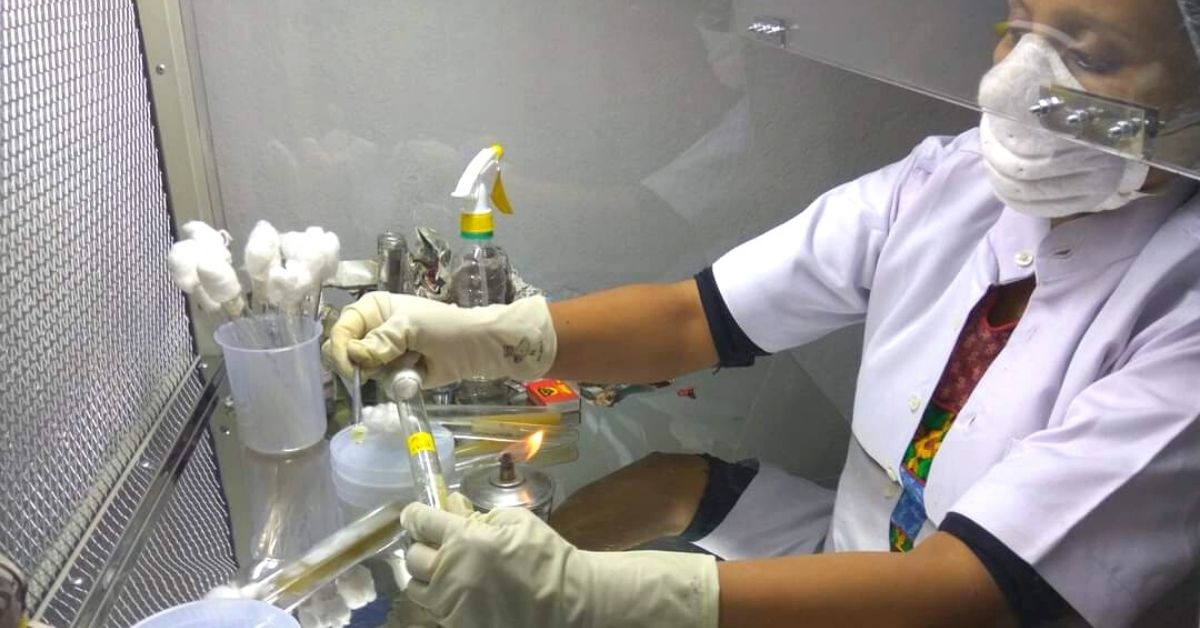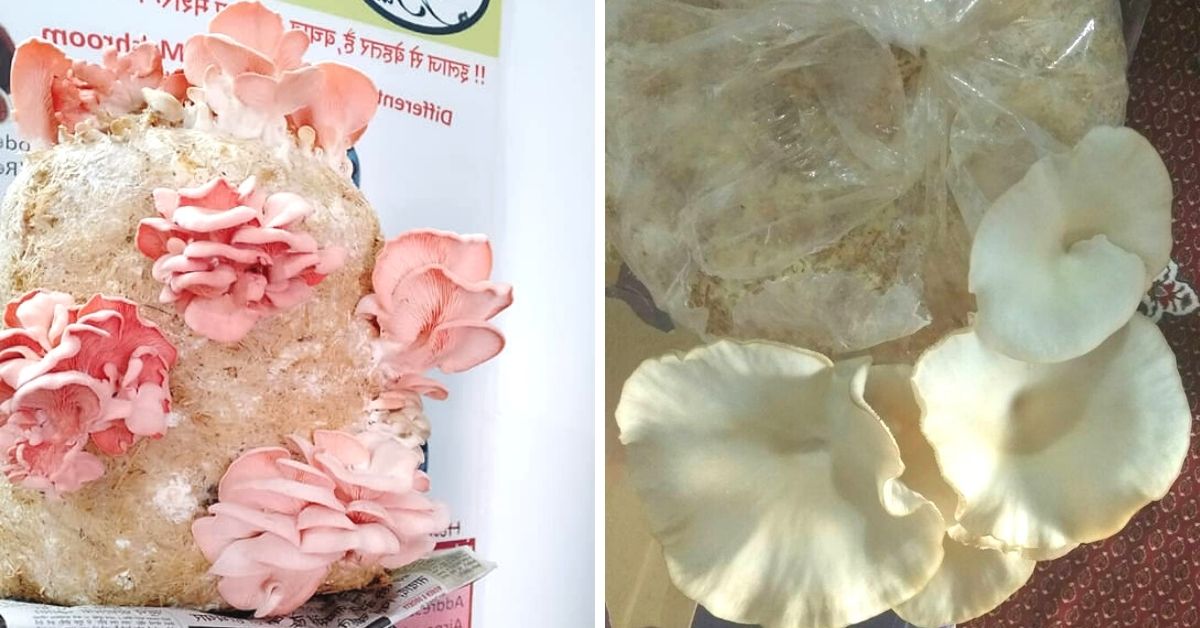Indore-based Pooja Dubey Pandey launched her startup Biotech Era Transforming India (BETI) to grow mushrooms using stubble, and has since expanded into packing material
Pooja Dubey Pandey from Indore, Madhya Pradesh is a biotechnologist who has worked at various research institutes, including the National Institute of Virology (NIV), during a fellowship.
Her research work involved travelling to places such as Mumbai, Bhopal, Punjab, Haryana and Delhi. This in turn exposed her to a variety of issues.
In 2015, with ten years of experience in research, she quit her job to care for her child and returned to her hometown. She wanted to start something of her own, but her aim was not to find a new job. Instead, she decided her work will focus on two issues — lack of nutrition in marginalised communities, and pollution caused due to stubble burning.
For a solution, she zeroed in on mushrooms, which come with high nutritional value and can be grown using stubble. “I worked on mushrooms during my postgraduation and PhD. This, coupled with numerous visits to farms, taught me a lot about the value of mushrooms,” she tells The Better India.
So today she is addressing both these issues with her startup, Biotech Era Transforming India (BETI).ADVERTISEMENT
Eco-friendly packaging from stubble

With limited funds at her disposal, in 2016, Pooja decided to convert her basement into a laboratory to yield high quality spawns and cultivate mushrooms. “In 2017, I formally launched BETI,” she says.
“Working in government institutions with resources and advanced technology is a unique opportunity. However, research work in the lab takes years to reach the beneficiaries. The startup was the only way to work directly with beneficiaries and share my expertise, thereby offering immediate results,” she explains.
The 38-year-old began cultivating mushrooms using stubble, and selling them in the market. “I used whatever knowledge I had gained during my postgraduation, which also taught me about how stubble can be used to grow mushrooms,”she says, adding that this way, farmers could prevent stubble burning.
She also started roping in farmers, offering high quality spawns to help increase their income. However, she soon realised that the mushroom packaging involved the use of styrofoam or plastic, a conventional practice among the community.
Wanting to find a more environmentally viable solution, Pooja then went back to her drawing board. Using her biotechnology skills, she created an innovative, eco-friendly packaging material made from stubble. “I used pathogens and bacteria to decompose stubble. The decomposed matter was processed and converted into simpler compounds, which made it easier to bind. The material obtained was used to give the desired shape,” she says.
“I also received funding of Rs 5 lakh from the Central government for the project. I took the product to farmers and asked them to replace the existing packaging material with the biodegradable alternative,” she says.
Aiming for larger impact
Pooja adds that so far, she has connected with 300 local mushroom farmers who use the packaging. “The packaging is handmade for now and costs Rs 5 per piece. However, mass production can reduce the price further,” she says, adding that reducing the production cost will attract more farmers to use the material.
Chandramohan Choudhary, a farmer from Betul, says that his income from mushrooms had been suffering since 2019. “The COVID-19 lockdown affected the produce and supply chain. Moreover, the spawn quality was also poor. Pooja helped me get high-quality yield mushrooms and kits, which in turn has helped me revive my farming activities,” he adds.
Chandramohan says that apart from summer months, when growing mushrooms is unfeasible, he earns Rs 25,000 a month.

The entrepreneur has also used the mushroom to make value-added products. “I have devised a mix to replace unhealthy noodle masala in the market with healthy alternatives by using mushroom, moringa and other herbs. It helps control diabetes, weight loss, and cholesterol,” she notes.
Pooja says she is working to increase her product range by using healthy herbs and superfoods such as chia seeds. “The COVID-19 pandemic has made people more aware of their health and the need to boost their immunity. Since mushrooms provide Vitamin D, it becomes the only source of the nutrient for vegetarians,” she adds.
“I hope to further my impact by working with more farmers to increase their income, address the issue of nutrition deficiency, and mitigate stubble burning on a large scale,” she adds.
Edited by Divya Sethu
